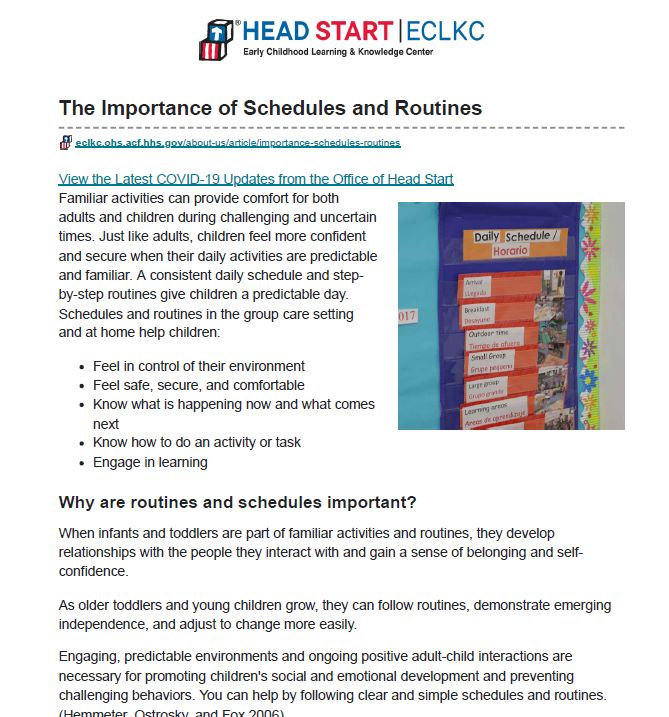What are Three Challenges Facing Early Childhood Education Today : Top Hurdles Unveiled

Three challenges facing early childhood education today are lack of funding, teacher retention issues, and access to quality programs. These challenges hinder the delivery of effective education to young children, impacting their development and future success.
In a rapidly changing world, addressing these obstacles is crucial to ensure that every child has equal opportunities for a strong educational foundation. By understanding and tackling these challenges head-on, we can work towards creating a more equitable and accessible early childhood education system that sets children up for lifelong learning and achievement.
Let’s delve deeper into the complexities of these challenges and explore potential solutions to improve the landscape of early childhood education.

Credit: www.collegevaluesonline.com
Inadequate Funding
Insufficient Government Funding
Government funding for early childhood education is inadequate, leading to a lack of resources and support for programs. This shortage of financial backing hampers the ability of institutions to provide quality education, affecting the overall development of young children.
Lack Of Private Funding
The absence of substantial private funding further exacerbates the financial strain on early childhood education. Private sector contributions are vital in bridging the gap left by insufficient government funding, but the lack thereof results in limited access to necessary resources and educational opportunities for young learners.
Effects Of Inadequate Funding On Early Childhood Education
The repercussions of inadequate funding reverberate throughout early childhood education, impacting the quality of facilities, teacher salaries, and the availability of essential learning materials. This, in turn, compromises the overall educational experience and hinders the holistic development of children during their formative years.

Credit: www.intechopen.com
Teacher Shortages
Teacher shortages pose a significant challenge to early childhood education today. These shortages result in a lack of qualified educators, affecting the quality of learning experiences for young children. It’s crucial to understand the reasons for teacher shortages, their effects on early childhood education, and potential solutions to address this issue.
Reasons For Teacher Shortages
Several factors contribute to the shortage of early childhood educators, including low salaries, inadequate support and resources, and demanding work conditions. Additionally, the high educational requirements and certification processes deter potential candidates from pursuing careers in early childhood education.
Effects Of Teacher Shortages On Early Childhood Education
The scarcity of qualified teachers in early childhood education can lead to larger class sizes, decreased individualized attention, and a lack of specialized instruction for children with diverse learning needs. This ultimately impacts the overall quality of education and may hinder children’s development and school readiness.
Solutions To Address Teacher Shortages
- Increasing funding for early childhood education programs to improve teacher salaries and benefits.
- Implementing mentorship and professional development programs to support and retain educators in the field.
- Streamlining certification processes and providing incentives to attract more individuals to pursue careers in early childhood education.
Access To Quality Early Childhood Education
Quality early childhood education faces three main challenges today: lack of access for low-income families, inadequate funding for programs, and a shortage of qualified teachers. These challenges hinder children’s development and future success.
Lack Of Access In Low-income Areas
Affordability For Families
Importance Of Quality Early Childhood Education

Credit: blog.alphatub.com
Impact Of Technology On Early Childhood Education
In today’s early childhood education landscape, three key challenges loom large: bridging the digital divide, ensuring equitable access to technology, and promoting digital literacy among educators. These hurdles underscore the complex interplay between technology and learning in young children’s formative years.
Impact of Technology on Early Childhood Education Technology has become an integral part of our daily lives, and its impact on early childhood education is undeniable. While it offers numerous benefits, there are also potential risks that need to be addressed. Finding a balance for technology use in early childhood education is crucial to ensure that children receive the best possible learning experience. Benefits of Technology in Early Childhood Education The integration of technology in early childhood education can enhance learning experiences for young children. Interactive educational apps and games can make learning more engaging and stimulate cognitive development. Additionally, technology provides access to a wealth of educational resources that can cater to different learning styles, helping children to grasp concepts more effectively. Potential Risks of Technology in Early Childhood Education However, excessive screen time and reliance on technology can pose risks to early childhood education. Overexposure to screens may lead to developmental issues and affect social interaction. Furthermore, the quality of content accessed by young children needs to be carefully monitored to ensure that it aligns with educational objectives and promotes healthy development. Finding a Balance for Technology Use To address these challenges, it is essential to find a balance for technology use in early childhood education. This involves setting limits on screen time and encouraging hands-on activities to complement technology-based learning. Moreover, ongoing supervision and guidance from educators are crucial in ensuring that technology is used as a tool to enhance learning without overshadowing the importance of real-world experiences. Incorporating technology into early childhood education presents both opportunities and challenges. By carefully considering the benefits and risks, and finding a balance in its usage, educators can harness the potential of technology to provide young children with a well-rounded and effective learning experience.Frequently Asked Questions
What Is The Biggest Issue In Early Childhood Education?
The biggest issue in early childhood education is inadequate funding and resources for quality programs.
What Are Three Critical Challenges Impacting Early Childhood Education?
Critical challenges impacting early childhood education include lack of access to quality programs, inadequate funding for resources, and addressing the needs of diverse learners.
What’s Your Biggest Challenge As An Early Childhood Educator?
Balancing individual needs while maintaining group dynamics is a major challenge for early childhood educators.
What Are The Key Issues In Early Childhood?
Key issues in early childhood include developmental delays, lack of access to quality education, health disparities, poverty, and inadequate parental support.
Conclusion
Early childhood education faces challenges like inadequate funding, lack of qualified teachers, and access to quality programs. Addressing these issues is crucial for the holistic development of children. By prioritizing investment, training, and equitable access, we can create a brighter future for our youngest learners.
Lorem Ipsum is simply dummy text of the printing and typesetting industry. Lorem Ipsum has been the industry’s standard dummy text ever since the 1500s, when an unknown printer took a galley of type and scrambled it to make a type specimen book.






